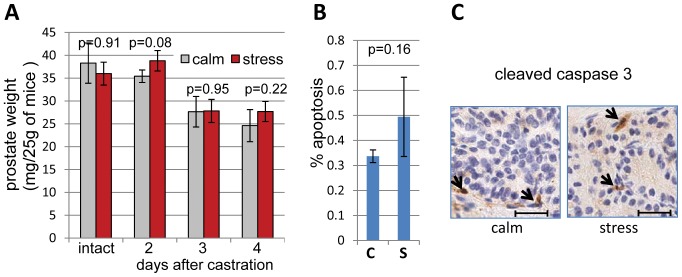Figure 1. Behavioral stress fails to delay surgical castration-induced involution and apoptosis in mice prostates.
A) Castration-induced prostate involution. Mice were either left intact (n = 4) or surgically castrated and subjected to immobilization stress twice a day with 12 h intervals (stress) or not subjected to stress (calm). At 2, 3 or 4 days post-castration (n = 3 for both calm and stress), prostates were excised, dissected, and weighted. Prostate weight decreased significantly by day 3 after castration (p = 0.01). There were no significant differences in prostate weights between stressed and calm groups. B) Stress does not decrease apoptosis in castrated prostates. Apoptosis (expressed as percent cleaved caspase-3 positive cells) was determined relative to the total number of glandular epithelial cells in whole sections of dorsolateral prostate glands excised 3 days after castration in stressed (S) and calm (C) groups of mice (n = 3 in each group). C) Representative images of cleaved caspase-3 IHC-stained sections from dorsolateral segments of the prostate from intact (calm) or stressed (stress) mice. Arrows point at caspase 3 positive cells. Scale bars: 50 µm.

